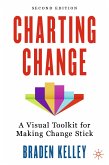This book examines businesses under crisis conditions through a composition of contextual accounts. The Editors argue that crises are transformative, evolutionary and even revolutionary in the development of organizations, industries and markets. Moreover, crises reform the context in which organizations operate, including customers and their behaviour. As such, they need to be viewed as conduits to change, accelerators of evolution and catalysts of innovation in organizations. Emphasising the importance of 'context' and its complexities, the book argues that for crisis, as a concept and notion, context is crucial to any understanding of the meaning that should or could be attached to it.
Bringing together scientific research and case studies on contextual transformations, the book provides a balanced selection of works across business disciplines, including management, strategy, marketing and finance as well as geographic regions, market types and industries. The book examines the context of crises, its indicators and triggers, and encompasses topics such as Artificial Intelligence, e-mobility, changes in consumption patterns, militancy and the impact of pandemics.
Demetris Vrontis is Professor and Vice Rector for Faculty and Research at the University of Nicosia in Cyprus.
Alkis Thrassou is Professor in the School of Business at the University of Nicosia, Cyprus, and a Senior Research Fellow of the EuroMed Academy of Business (EMAB).
Yaakov Weber is Professor and Director of the Research Unit, School of Business Administration, College of Management, Israel.
S. M. Riad Shams is Lecturer at the Newcastle Business School, Northumbria University, UK.
Evangelos Tsoukatos teaches Management at the University of Applied Sciences Crete, Greece, and is adjunct faculty at the University of Nicosia and the Hellenic Open University.
Leonidas Efthymiou is Assistant Professor in Hospitality and Management.
Bringing together scientific research and case studies on contextual transformations, the book provides a balanced selection of works across business disciplines, including management, strategy, marketing and finance as well as geographic regions, market types and industries. The book examines the context of crises, its indicators and triggers, and encompasses topics such as Artificial Intelligence, e-mobility, changes in consumption patterns, militancy and the impact of pandemics.
Demetris Vrontis is Professor and Vice Rector for Faculty and Research at the University of Nicosia in Cyprus.
Alkis Thrassou is Professor in the School of Business at the University of Nicosia, Cyprus, and a Senior Research Fellow of the EuroMed Academy of Business (EMAB).
Yaakov Weber is Professor and Director of the Research Unit, School of Business Administration, College of Management, Israel.
S. M. Riad Shams is Lecturer at the Newcastle Business School, Northumbria University, UK.
Evangelos Tsoukatos teaches Management at the University of Applied Sciences Crete, Greece, and is adjunct faculty at the University of Nicosia and the Hellenic Open University.
Leonidas Efthymiou is Assistant Professor in Hospitality and Management.
Dieser Download kann aus rechtlichen Gründen nur mit Rechnungsadresse in A, B, BG, CY, CZ, D, DK, EW, E, FIN, F, GR, HR, H, IRL, I, LT, L, LR, M, NL, PL, P, R, S, SLO, SK ausgeliefert werden.
Es gelten unsere Allgemeinen Geschäftsbedingungen: www.buecher.de/agb
Impressum
www.buecher.de ist ein Internetauftritt der buecher.de internetstores GmbH
Geschäftsführung: Monica Sawhney | Roland Kölbl | Günter Hilger
Sitz der Gesellschaft: Batheyer Straße 115 - 117, 58099 Hagen
Postanschrift: Bürgermeister-Wegele-Str. 12, 86167 Augsburg
Amtsgericht Hagen HRB 13257
Steuernummer: 321/5800/1497
USt-IdNr: DE450055826
Bitte wählen Sie Ihr Anliegen aus.
Rechnungen
Retourenschein anfordern
Bestellstatus
Storno









